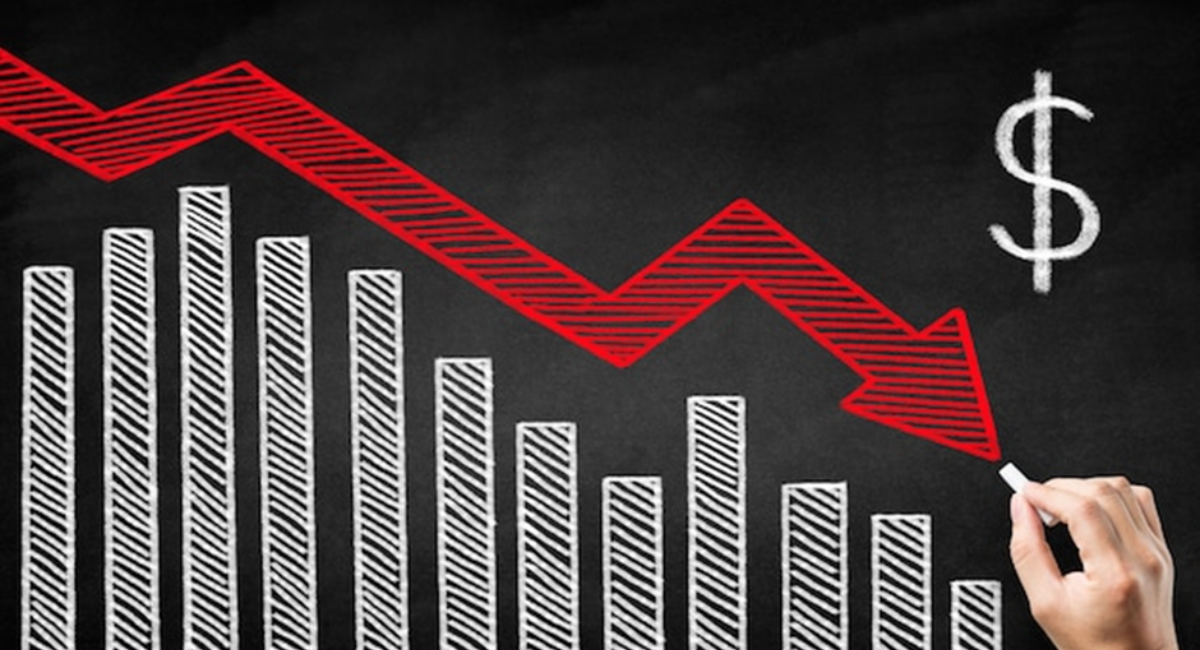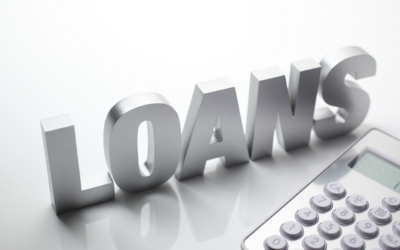The COVID situation has greatly impacted the markets worldwide. It is quite clearly seen all across the US as well.
Irrespective of the industry you are involved in, the COVID situation has changed the way one can operate or carry on with the business.
CRE Loan in the coronavirus crisis is no different it. Everyone now knows the difficulty one can face in processing real estate loans.
But wait, this does not end here. As 2023 is going to end, it certainly looks like the US dollar has fallen to a great extent.
As per the US dollar index, the dollar has fallen to about ten basis points over the last nine months. This has all happened because the investors are now moving the exposure away from the currency against a backdrop of quite a weaker-than-expected economic data.
At the same time, the Fed has slowed the rate height cycle compared to the central banks.
Adding to it is the recent data, which shows slower consumer spending. This has further stated that the Fed could be losing the reins, which would put downward pressure on the dollar.
Currency fluctuation is a major factor in the modern economy that determines the profit and losses of many large businesses.
For instance, Nike last year warned that there will be an expected heavy dollar strengthening, which will knock about $4 billion of the annual revenue.
Thus, this clearly shows such a potential impact on the companies will have no effect on the investors, both in the private and the public sectors.
While the private equity decade-long appreciation seems at odds with the daily ups and downs of the foreign exchange, understanding how the changes in the currency will impact the investment performance is still a puzzle one must understand to avoid any severe consequences.
How can currency movement affect private equity funds?
When talking about the high level, the investors can easily identify the different ways for the currency changes and how it can impact the performance of the fund.
It is divided broadly into three categories: transactional risk, portfolio risk, and operational risk.
- Portfolio risk illustrates how the investment made beyond the home currency fund can impact or boost performance. It is due to this fact that the non-domestic investments that are made in foreign currency must be converted back into the home currency fund before any distribution.
Situations like this can happen with the larger investors who have a global presence. For example, EQT’s ninth flagship fund. It includes investment across the UK, European Union, and US and conducts deals across several different currencies. Thus, in this case, the effect can be quite significant.
- The transactional risk covers two elements. When talking about the macro level, it will be the overall fund’s currency exposure as it sells, buys, and finances new investments while being on a deal-by-deal basis. Simply, it will refer to how an exchange rate could alter between closing the transaction or an agreement.
- Operational risk, on the other side, will cover any effect of the movement of the currency on the normal fund or on the business operations.
Historically, private equity funds have already started accepting these risks and have started overcoming them with active management of the asset class and its history of performance.
However, there have been wild foreign exchange swings in the last year. Thus, it was seen that most investment manager considers currency hedging when going ahead with any deal.
Despite all the changes, transactional level hedging is more of an exception than a rule for private equity for various reasons.
Beyond being an expensive option, service hedging cost does not really fit with the private equity funds and is unpredictable. The same goes for holding periods.
While the managers can easily forecast the timeline, there is no assurance for the uncertainty over the length of the holding period, underlying portfolio, company exposure, or size of exit to foreign exchange. This all makes effective hedging very difficult.
Adding to it, the managers who wish to spend on hedging must typically prefer to do so against historically volatile currencies such as the Brazilian real, Turkish lira, etc., rather than the world reserves currency or the US dollar.
Currency movement in terms of allocation
Despite all the changes, the currency movement comes with a huge risk for the investors and the funds.
Having a proper understanding of what the risks are in terms of individual allocation must be a key consideration before committing to any private equity allocation.
This is particularly difficult in the current environment, given the largest private equity and venture capital funds are based in the US.
When talking in terms of practice, an individual investing in a private equity fund in a different currency will benefit greatly in terms of foreign exchange if the currency depreciates against the fund.
Let’s consider an example of a German-based investor who allocates in euros to a US dollar-dominated fund from a US private equity firm. The question here is whether the euro will weaken against the dollar over the investment timeline.
Here, the investor can only understand that from the exchange perspective and nothing else.
It is derived simply from the fact that in this scenario, the dollar will be able to buy and return more euros for the investors during the distribution than it would have done when the investors originally invested in capital.
Avoiding short-term thinking for better returns
The market condition now is quite volatile, but despite this, there is a possibility to invest in the right way and earn long-term results. It is now crucial to understand the market condition better so as to not miss out on any private equity inherent value creation.
Private equity has a long history of outperformance. This is related to other asset classes, with one of the benefits being the long-term investment horizon and the ability to take short-term focus in the current volatile market condition out of the equation.
However, leaving money on the sidelines, considering the short-term focus, can also mean a loss for the investors as they will be missing out on a huge opportunity.
A study has even found a theoretical investor with even the worst possible market timing will be able to outperform those who left investment in cash proxies.
Furthermore, there is still a possibility for private equity investors to benefit from a degree of currency risk by taking advantage of the asset class staggered cash flow profile while also actively building a well-rounded portfolio.
- Making use of the exchange rate through the fund’s life cycle.
The private equity cashflow profile in investment is drawn over a period of time. It is divided into two.
First, the initial capital calls when the fund requires money, and then the eventual distribution is when the money is returned to the investors over a specified period of time.
This long-term structure of outflow and inflow will be helpful to smooth out the uneven nature of the currency market over a prolonged period of time.
- Downside protection through diversification
The individuals can further avoid any currency risk within the private market by constructing a diverse and balanced portfolio with interest in the funds invested across multiple sectors and geographies.
It will be quite an effective strategy that will come with long-term benefits. Herein, considering the long-term asset classes, such as private equity, that can withstand shocks from the interest rate changes will be the best.
But remember, the currency fluctuations of the short-term portfolio might not be able to perform better.
Looking ahead to the future
The current downfall of the dollar has brought the investor’s attention to how it can possibly impact the portfolio, specifically in the current uncertain economic situation.
However, in the private equity context, when that wastage focuses on short-term exchange rate fluctuations, it can result in investors leaving money on the sideline.
In turn, this will mean missing out on the inherent ability of the private equity to spread out for an exchange risk with the long-term cash flow profile and portfolio diversification over time.
This is why the movement of the dollar or any other currency is extremely important to keep in mind when investing in private equity or otherwise. However, one must also consider other aspects as well, which will include investment risk, long-term benefits, etc. This will help make the decision in the proper context.
Conclusion
Given the current downfall of the dollar, acquiring financing for a project can be quite tough. If you are facing any difficulty, getting professional support from Private Capital Investors will be the best. They have got experienced professionals who will be there to support you to the best.
They will not just help you acquire commercial real estate financing but will also ensure you are able to learn about the industry and other aspects better. Thus, ensuring the investment you make turns out to be fruitful for you.
So, instead of taking a risk in the current volatile market situation, getting the support here will make a major difference. Go ahead to contact them and get the support you require for better investments.





